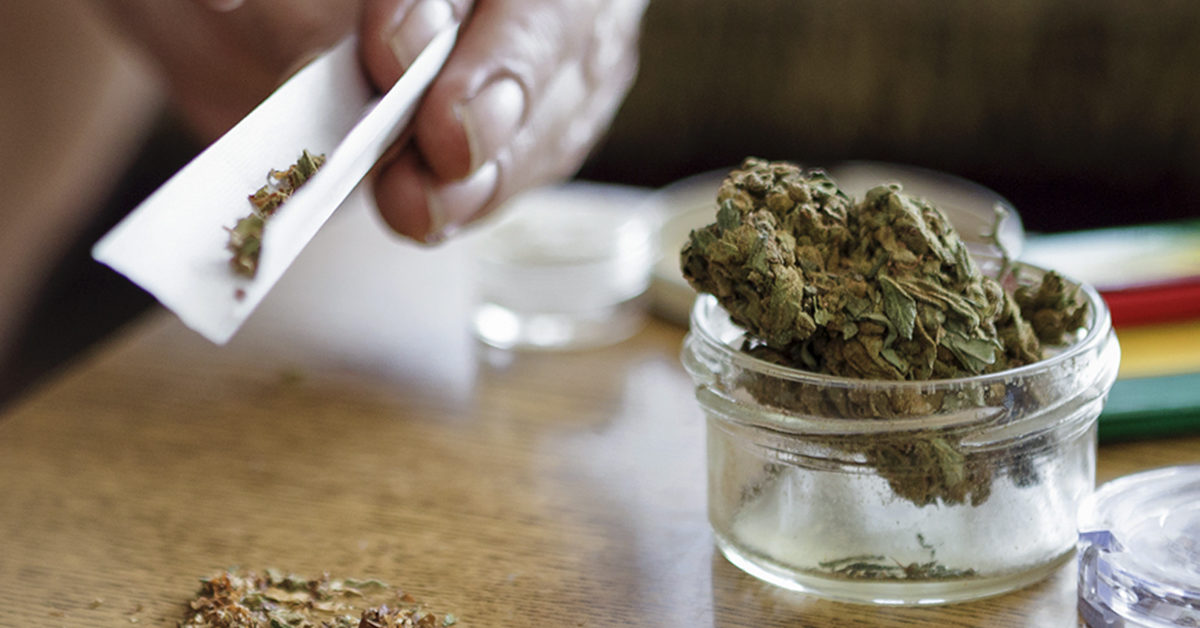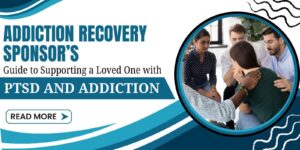The 2020 National Survey on Drug Use and Health (NSDUH) by the Substance Abuse and Mental Health Services Administration (SAMHSA) says 17.9% of people aged 12 or older or 49.6 million people used marijuana in the past year in the United States. Marijuana abuse can cause severe mental and physical problems. Therefore, to free themselves of marijuana & weed addiction, individuals should seek professional help and receive timely marijuana addiction treatment.
Marijuana is the dried flowers, leaves, and stems from the Cannabis sativa plant. The Group of substances found in the cannabis plant is called cannabinoids. The two main cannabinoids are delta-9-tetrahydrocannabinol (THC) and cannabidiol (CBD). THC is the main chemical in marijuana that possesses the mind-altering effect and produces the ‘high’ effect. On the other hand, CBD offers medicinal properties to marijuana and does not cause any euphoric effect.
Also called weed, pot, grass, Mary Jane, skunk, and dope, the substance is used for both medicinal and recreational purposes. However, the US Food and Drug Administration (FDA) has not given a nod to using the plant for medicinal purposes. But medicinal marijuana is used to treat various conditions and diseases like epilepsy, cancer, Alzheimer’s disease, seizures, schizophrenia, chronic pain, muscle spasm, etc. Though marijuana is not federally legalized in the US, it can be legally used for medicinal purposes in 35 states and the District of Columbia in the US.
The most widely used recreational drug can be smoked as a cigarette (joint) or in a pipe. It can also be smoked through cigars. It can be used with other food items. It can also be consumed by combining with other drugs like cocaine.
Regular use of marijuana affects both mind and body of the user and creates dependence on the drug. The THC found in marijuana increases the dopamine level in the brain which gives a sense of euphoria. Prolonged use also causes mind-altering effects. According to the 2020 (NSDUH), for people aged 12 or older, about 5.1% or about 14.2 million people struggled with cannabis use disorder in the past year.
Some short-term effects of marijuana are :
- Nausea, vomiting
- Increased heart rate
- Euphoria
- Breathing problems
- Coordination problem
- Lethargy
Some long-term effects of marijuana are:
- Hallucinations and paranoia
- Chronic psychotic disorders like schizophrenia
- Decreased learning ability
- Lower satisfaction level
- Tremor
- Restlessness
- Add to depression and anxiety
- Lower IQ level if used during adolescence
Considering that marijuana and weed addiction can alter brain functioning, the only way to get rid of this problem is to seek timely treatment from marijuana and weed rehab centers. The centers treat both the physical and mental effects of the drug. Marijuana addiction treatment at rehab centers is both comfortable and safe.
The round-the-clock care and support play a significant role in helping avoid relapse and manage the related withdrawal symptoms. If you are not in the condition to travel to a far-away drug rehab center, you can use the online search option – marijuana & weed addiction rehab centers near me – to find a rehab center that is closer and suits your requirements.
Despite its medicinal properties, marijuana (weed) is a highly addictive drug. According to the National Institute on Drug Abuse (NIDA), 30% of people who use marijuana might suffer from some level of “marijuana use disorder.” As per a survey conducted by the Statista Research Department in 2021, 12% of adults in the US smoke marijuana. Some of the reasons for marijuana addiction include:
- Recreational use
- To deal with mental health conditions like depression
- To overcome family problems
- To overcome financial or professional pressure and stress
- Prolonged use for medicinal purpose
Marijuana, the most commonly used illegal drug in the United States in 2020, has many adverse effects. Addiction to weed can destroy relationships, finances and health in many ways. Marijuana addiction treatment is a long process; thus, it is important to understand the implications of the problem and try to overcome the misuse as sooner as possible. It might take some effort initially; however, taking control of the situation on time is possible. Here are some tips to overcome the initial dependence on marijuana
- Join a hobby class or go hiking and trekking
- Overcome stress by joining meditation or yoga classes
- Go for physical activity and workouts
- Do not succumb to peer pressure for weed use
- Do not self-medicate mental health problems
According to the 2020 NSDUS, marijuana use has been on the rise among 12th-grade students. The level of 6.4% recorded in 2019 is the highest figure recorded since 2013.
Given the long-lasting effects of cannabis on the brain, those addicted to the drug should seek professional help to get their life on track. And the best way to do so is to seek addiction treatment from professional rehab centers. Let’s look at the steps to treat weed addiction
Wider acceptance of marijuana use in America should not be a reason to deter you from seeking treatment for marijuana use disorder. Weed addiction treatment can be best done by rehab centers that analyse the individual’s situation and then come up with an effective treatment program. The recovery plan depends on the severity of the addiction. And the severity depends on factors like prolonged use of the drug, higher dose, use of alcohol or other drugs, and other mental health conditions. A successful treatment journey begins with a guided marijuana detox followed by therapy.
.
Marijuana and weed addiction treatment starts only after detox. The process focuses on flushing out the toxins from the body to prepare it for recovery. Detox also helps tackle the withdrawal symptoms and manage drug cravings.
Detox done under medical supervision helps avoid relapse and take care of any complications that might arise in the due process due to the use of another substance or the presence of any mental health problems. Individuals who need to use marijuana for medicinal purposes should never go cold turkey or suddenly stop the drug use on their own in case of an addiction problem. They should always seek help from a drug rehab center that gradually tapers the drug dose to manage the withdrawal symptoms.

Regular marijuana use makes the body dependent on it. In the absence of the drug, the body and the brain cannot function normally. So, when individuals discontinue using marijuana or weed, they experience uncomfortable symptoms. These can affect the user physically, emotionally, and behaviorally. These painful withdrawal symptoms can start within seven days of discontinuation of marijuana. Mild dependence causes minor problems. Some of the marijuana withdrawal symptoms are:
- Anxiety, nervousness
- Restlessness
- Depression
- Sweating, tremors, headaches
- Insomnia
- Irritability
- Anger
- Stomach pains
Our navigators will help you take back control of your life.
When you call our helpline, an admissions navigator is there to listen to you, answer any questions you have, and provide the support that you need—all 100% confidentially.
At present, no FDA-approved medications are available for the treatment of marijuana addiction. However, different types of therapies have shown promising results in treating the psychological effects of marijuana use disorder. Cognitive behavioral therapy (CBT) helps learn coping mechanisms, increase self-control, and manage behavior issues in order to say no to the drug. Contingency management offers tangible rewards to promote drug-free living. Motivational enhancement therapy is a method of counselling that motivates patients to embrace treatment.
Once the therapies are over, activities like counselling sessions, support programs, meditation, yoga and family therapy play a significant role in achieving long-term recovery from marijuana addiction. They help in maintaining proper discipline and avoiding any chance of relapse. Regular visits to rehab centers for after-care services help tackle other co-occurring mental illnesses and stay focused and motivated. In no way should ongoing recovery be neglected, as it strengthens the desire to stay sober.
Structured treatment programs and 24*7 care and support at rehab centers play a significant role in helping patients get free of this dangerous drug trap. The centers are also equipped to handle polydrug use problem or any underlying mental health conditions. The rehabs also offer aftercare services which help increase the chance of leading a drug-free life.
There is no dearth of rehab centers to guide and help you. However, rehab should be chosen with a lot of care, for the quality of the alcohol rehab program can make a massive difference in the treatment outcome. Cost and location are two critical points to be considered when scouting for a good rehab.
Some of the points to keep in mind while selecting a rehab are:
- Center should have a license.
- It should be managed by a professional trained to manage addiction and substance abuse issues.
- It should offer individualized treatment.
- An array of therapy options should be available
- Aftercare services should be available to enhance the recovery success rate
- It should be able to handle co-occurring disorders
- Counseling, both individual and family, should be available.
Check to see if your insurance is in-network at an American Addiction Centers location
We’ll instantly check the coverage offered by your insurance provider.
Depending on the seriousness of the addiction problem and the presence of other co-occurring mental health disorders, individuals addicted to marijuana or weed can enrol for one of the three types of available rehab programs. It can be an inpatient marijuana rehab, an outpatient marijuana rehab or a partial hospitalization program. Let’s look at the three programs in detail
In a residential treatment program or inpatient marijuana and weed rehab, individuals receive intensive treatment for marijuana addiction. They get to live in a hospital or a clinic during the program as they get 24*7 monitoring and care from doctors, nurses, and other experts. Individuals concentrate on recovery without any distraction because of the absence of any contact with the outside world.
The residential program is considered the best option for patients with severe addiction or dual diagnosis issues. Individuals who do not wish to give up the luxuries of life while receiving the treatment for weed addiction treatment can opt for a luxury rehab facility.
Outpatient marijuana and weed rehab offer flexibility in the treatment schedule. It is best suited for individuals with less severe addiction or who have attended inpatient rehab programs before. It allows recovering marijuana addicts to manage their professional and family responsibilities. This setup is cheaper than inpatient as patients visit the rehab on certain days for treatment offered under a hospital setup.
As part of a partial hospitalization program (PHP), patients receive treatment at the rehab during the daytime and stay home at night. Though the program offered is not in a hospital setup, it provides high-level and customized support and care. This setup is a good option for individuals who do not suffer from dual diagnosis, are not addicted to another drug or have already attended an inpatient rehab program for marijuana use disorder.
Marijuana or weed is so addictive that even its casual consumption can soon make you dependent on the drug. To check the level of dependence and the severity of addiction, individuals could take a self-assessment test in the form of questions and answers. Any form of substance addiction should not be left untreated, or it can create havoc in your life. Based on the assessment result, seek timely help from a reputed rehab center.
If your family member or a loved one is battling marijuana addiction, the first step is to make them accept the problem. Persuade them to understand that they are in a situation, and the only solution is seeking professional care and treatment from a rehab center.
Once you have zeroed in on a suitable rehab program, support your family member or a loved one during and after the treatment. Get acquainted with the signs and symptoms of marijuana addiction and its long-lasting effects. Take care of yourself to stay fit and healthy to help the loved one. Motivate and encourage loved ones to stay strong enough to achieve sustained recovery.
To help a person addicted to crystal meth, educate yourself about the addictive stimulant and its damaging effects on the physical and mental health of the user. Also, understand the signs and symptoms of addiction and different rehab programs for treatment.
Avoid being negative as you patiently handle mood swings associated with crystal meth addiction. But don’t forget to take good care of yourself to manage the situation well while helping your loved ones get sober and healthy again.









